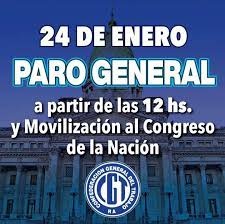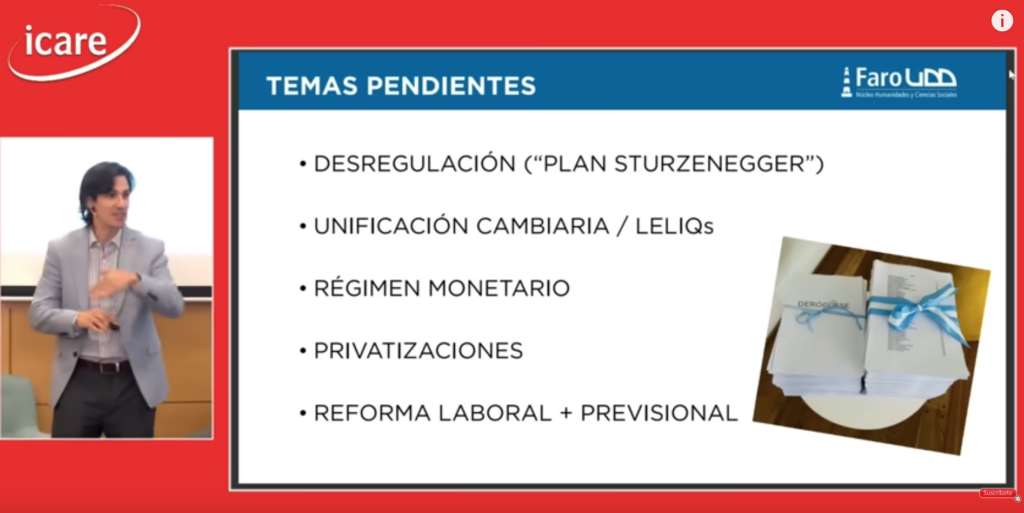
Major political shifts shuffle the deck in national political parties. New powers often wish to press for legislative change to reformulate the state in their image. They have been elected to do so in a democratic way. Milei is the new kid on the block and he is busy, so very very busy! But democracy is not his thing!

In Argentina legislative change can be accelerated if the president can create the perception of crisis or if a real one exists. In Argentina’s legal terminology “Necessary and Urgent Decrees” (DNUs) (added to the 1995 constitution by Carlos Menem) can be used to speed up legislative changes but only if there is a real crisis, at least that’s the theory.
Article 99, Sub-section 3: The President of the Nation participates in the formation of laws in accordance with the Constitution, promulgates them and has them published. Under no circumstances may the Executive Power, under penalty of absolute and irrevocable nullity, issue provisions of a legislative nature. Only when exceptional circumstances make it impossible to follow the ordinary procedures provided for in this Constitution for the enactment of laws, and when they do not concern regulations governing criminal, tax or electoral matters or the political party system, may it issue decrees for reasons of necessity and urgency (DNUs), which shall be decided by general agreement of Ministers who shall countersign them, together with the Head of the Cabinet of Ministers.
National Constitution of Argentina, 22nd. of August 1994
Fortunately Argentina is not at war, nor is the nation, in general, particularly poor. Argentina has great wealth but that wealth is not well distributed among the Argentine people and that situation is getting worse under Milei. Argentina’s principal resource is its educated citizenry and its vast territories, but it also makes many products with excellent markets both local and global. Examples include tourism to soybeans, grains and meat exports but also satellites and medical nuclear plants.
That the Argentine political caste is world famous for economic mismanagement (and serious corruption) is not in question but maybe it should be? What is in question is the emergency. Where’s the crisis? And, maybe more to the point, what does Milei really want to change? Milei claims that government itself is toxic. This is not him speaking, rather Milei is a mouthpiece for the quixotic and deranged political school of ultraliberalism. That said something rings true here for the Argentine people who see evident problems in their public sector like endemic corruption, an inept and undemocratic political class, national debt and tax evasion. Milei’s arguments made sense to them superficially at least; indeed they elected him. But there are two assumptions here that don’t ring true. The first is assumption is that you can run a country without a government and still have an economy which works for it’s people: roads, hospitals, ambulances, clean water, those kinds of things. The second questionable assumption is that the private sector will manage things better for their clients than a working government can. Why would that be true? It never has been and never will be. Private companies manage their resources to maximise their own profits and minimise costs (like a clean environment or a well paid employee). That’s it! No more no less!
Milei is throwing the baby out with the bathwater, the problem isn’t the baby but the fact that the baby is dirty. The water the child is being washed in is dirty. The point is to clean the baby not to kill her.
Milei argues that a return to the principles of his conservative liberal economic heroes 100 years ago, a time when Argentine women still had 30 years of struggle to even gain their right to vote. It may also be relevant, considering Milei’s obvious dictatorial tendencies, that Argentina’s worst economic excesses have been during or immediately after coup d’états which has mapped closely to Argentina’s decline.
Dictatorial excess is not beyond this little man, not by any means. Indeed in order to speed up legislative changes Milei has advocated removing the separation of powers between congress and the senate and his executive branch. He wants the legislature to roll over and give him the reins of the state with no interference. Article 3 of his proposed Omnibus law is asking for dictatorial powers to push through new legislation for two to four years. While some of the opposition forces have rejected such a treasonous act outright, others, curiously, are simply arguing for a shorter dictatorship (one year instead of two). Article 29 of the Constitution describes the act of giving a president such license as “Treasonous”. Maybe José Luis Espert should take some legal advice?

To the right: José Luis Espert and Berty Benegas Lynch, two significant self-appointed leaders of the bicameral commission desperately trying to shove through Milei’s massive law changes in the congress.
Milei on Speed
Since Milei became a candidate for President his tactic has been furious no holds barred acceleration of legislative change. What nobody is asking is “Acceleration toward what?” Using fear, anger and thriving on hatred -the childish techniques of a bully⏤ Milei, with Macri’s teams behind him, have created, then sustained and then misused ‘crisis’ to force through massive blocks of (600+) laws (in the form of DNUs and mega-laws) which are currently being debated in congress at commission level.
If there is any real crisis it is economic and it has been severely accentuated by Milei’s own policies, like the 120% peso devaluation on day two of his presidency, price controls derogation and market deregulation which has spiked inflation, tripling it to 25% per month. Milei and Macri’s ministers are trying to push through a massive list of pre-prepared unpopular legislation designed by corporate lawyers to restructure the economy to benefit international capital. The quantity and packaging of hundreds of laws bundled together in incoherent blocks is a clear demonstration that Milei has no interest in democratic debate.
Milei is sometimes referred to as a ‘Topadora’; Spanish for Bulldozer. He wants it all and he wants it now! Anything in his way will be pushed aside. Democracy infuriates Milei, he’s even blamed democratic debates in the congress on his legislative proposals as being responsible for another runaway ‘blue’ peso-dollar exchange-rate hike (from 1000 pesos to 1200 pesos in a week).

“La Era Milei”, Santiago de Chile, Iván Carrino, https://www.youtube.com/watch?v=6IuuTROW78s
Cost-Benefit analysis
Financial funds invested in Argentina, especially those holding or speculating in Argentine debt, as well as Argentine exporters, want ‘better’ conditions of trade and less worker’s rights. Milei has defined these “better” conditions in his legislation. So far this has meant that the costs of adjustment are being borne not by his famous (caste) but by the working classes in Argentina, especially those employees that are considered by Milei to be ‘collectivists'”‘. Collectivist is not a real word, but something spat out by the twisted psyche of ultraliberalism something Milei lectured on at Davos on in mid January. This theory considers solidarity, that is any group of workers or demonstrators or any societal movement or NGO (outside of certain acceptable religions or any corporate entity) as suspect and therefore subject to repression where necessary. If workers think that they might have get better working conditions by organizing as a union for example, they are ‘collectivists’. These same collectivists rose to strike nationally on the 24th. of January 2024.
The corporate castes are the beneficiaries of Milei’s largesse already and this will be consolidated if Milei’s mega-laws get approved. Public workers like teachers or doctors in public hospitals have had their salaries frozen in a period of induced 25% inflation (per month) and 1300% energy inflation to come over the next quarter. These policies hurt the Argentine poor and middle classes whose minimum wage (even after recent raises) is now less thana third of the minimum wage in communist China which in January 2024 was USD$370/Month. The Argentine minimum wage in late January 2024, is 156,000 Argentine pesos, a minimum wage in ‘blue’ dollars of USD$124/Month (or less than six dollars a day). Worse still $124 buys very much less in Argentina than it can in China where prices are much more competitive and controlled.
This pain is necessary, says Milei. He argues that after this short-sharp-shock, all will be better soon, when the private sector will invest and pay higher wages. This remains to be seen and one might wish to ask “Better for whom?” and “When?” The exchange rate policies have already had winners especially for large landowners producing export commodities for sale in dollars who now get twice the local currency for their products. The latifundio trade and lobby group “La Rural” representing large landowners is still arguing for more tax breaks, to remove quotas and currency controls, but the devaluation of the peso has already boosted their incomes considerably. Not so rural (nor urban) workers though who have seen their real incomes erode in accelerated inflation.
Milei is a battering ram; he wants to smash down the walls of legislation that protect many local interests (some good protection and some not) but particularly Milei wants to strip workers rights to free up more power for capital invested in Argentina, a move that has led to a general strike.

Milei’s ultra-liberal policies are designed for the benefit of what he calls “the right people” (la gente de bien) but the cost is borne by other groups and this has been crushing for the poor. While Milei argues that he acts against corruption controlled by professional politicians (the casta of which he is now the main member) his only solution is dissolution.
In short it means austerity for the Argentine poor and some clear advantages for the export sector. This is why on January 24th there was a national general strike.

Leave a Reply